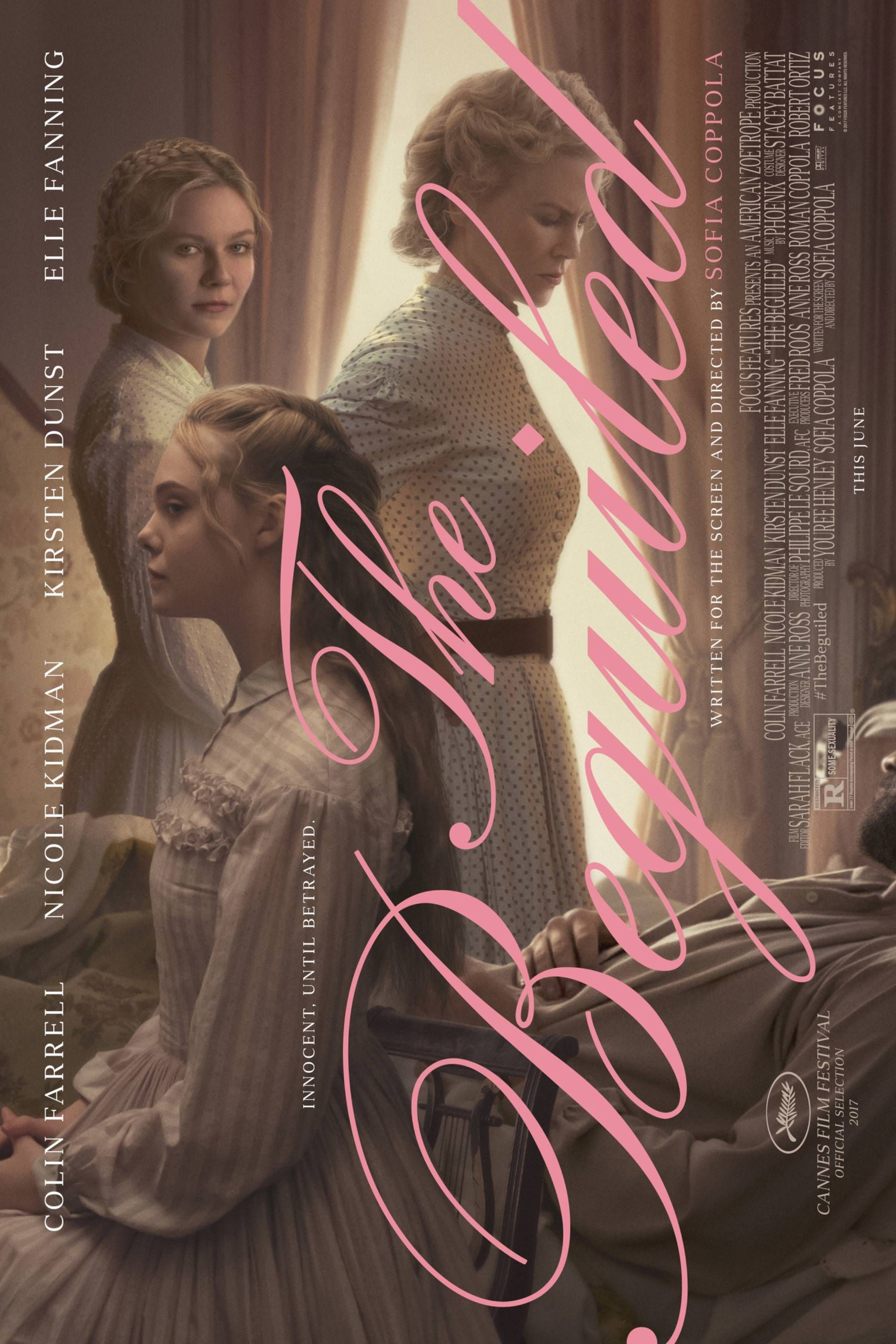As a maverick writer-director, remakes are not exactly in Sofia Coppola's wheelhouse, especially when it's a remake of a 1971 Gothic thriller starring Clint Eastwood. However, rather than re-working the Don Siegel film, The Beguiled, Coppola focused her attention on the source material, the novel of the same name by Thomas Cullinan, and re-contextualized it through not just modern sensibilities but her own cinematic tastes as well. This Civil War-set story about a wounded Union soldier treated by the pupils of an all-girls school in Virginia was a perfect platform for Coppola to engage with her portraits of Gilded Cages and melancholic feminity. While marred by controversy upon release in 2017 for desensitizing the Confederate South, The Beguiled, which won Coppola Best Director at the Cannes Film Festival, also features a career-best performance by Elle Fanning.
Sofia Coppola Puts Her Spin on the 1971 Film 'The Beguiled'
After curating her filmography around tales of privileged young women with an unshakable streak of pathos, Sofia Coppola took notable left turns in the 2010s, starting with a pitch-black satire on celebrity and commodity obsession in The Bling Ring. The Beguiled, a Gothic drama about perverse romance and swapping gender dynamics in a male-dominated world, sees the director operating in a distinct period similar to the glossy royal elegance of Marie Antoinette. Featuring an impressive ensemble cast that includes Colin Farrell (filling in Eastwood's shoes), Kirsten Dunst, Nicole Kidman, Anjourie Rice, and Elle Fanning, the film follows a girls' school in Virginia, run by Martha Farnsworth (Kidman), that tends to a wounded, deserted Union corporal, John McBurney (Farrell) amid the Civil War. As a teacher, Edwina (Dunst), and her pupil, Alicia (Fanning), vie for McBurney's affection, the film morphs into a twisted tale of envy and betrayal.
When putting her spin on The Beguiled, Coppola shifted the perspective of Siegel's original film by aptly focusing on the women in this proper girls' school instead of McBurney. "I thought to flip it over from their point of view and [show] women during wartime," Coppola told Film School Rejects. To the original film's credit, Siegel effectively deconstructs Eastwood's tough-guy image the same year he directed the star in Dirty Harry. However, Coppola sought to direct a film that was more soulful and naturalistic, and unlike Marie Antoinette, she was not self-conscious about making a "dusty" period piece. The 1971 film is a feverish, Kafkaesque nightmare of a powerful man stripped of his autonomy and haunted by the dissenting pupils, while the 2017 retelling retains the Southern Gothic atmosphere to dissect female liberation and the perilous temptations of young girls growing into adulthood.
Elle Fanning Shines in Sofia Coppola's Reversal of Gender Dynamics in the 19th Century South
Elle Fanning, who previously starred in Coppola's Somewhere, found her stride during this era, particularly with the one-two punch of The Beguiled and 20th Century Women. Her role as Alicia, the rebellious eldest pupil of the school, is a companion to her part in the Mike Mills film as the freewheeling young woman moving through life at a rapid pace. In Coppola's film, this archetype is fully realized thanks to the director's elegant touch, as Alicia's toxic behavior is not excused, but imbued with sympathy due to the oppressive nature of her environment. The character, a fascinating evolution from Kirsten Dunst's independent Lux Lisbon in The Virgin Suicides, was likely an appealing draw for Coppola. With Dunst now playing a senior figure in The Beguiled, Coppola engages with the power dynamics within the female hierarchy of this period.
Naysayers of Coppola have grown weary of her insistence on extracting trauma and gloominess from privileged women rather than those who are explicitly suffering from hardships. With The Beguiled, she ruffled feathers by glamorizing the chic beauty against the backdrop of war and slavery that was all too prevalent in the South. Not only did Coppola remove the black female slave character from the book in her adaptation, but she also cast her muse Dunst in a role presented as biracial in the novel. Coppola did not intend to brush over slavery, telling The Guardian, "Young girls watch my films and this was not the depiction of an African American character I would want to show them." The world of luxurious palaces simmering with angst is a world familiar to Coppola, and while glossing over slavery seems like an egregious misread of her story, demanding that every filmmaker explicitly condemn all historical atrocities is an affront to the audience's intelligence.
With her typically sensual direction and poignant undertones of female liberation in a masculine world, The Beguiled is a quintessential Sofia Coppola film and a brilliant adaptation of a previous text that re-imagines a social climate where women were not just on the periphery of the Civil War.
The Beguiled is available to rent on Amazon in the U.S.

Your changes have been saved
The Beguiled
Release Date June 23, 2017
Runtime 93 minutes









 English (US) ·
English (US) ·